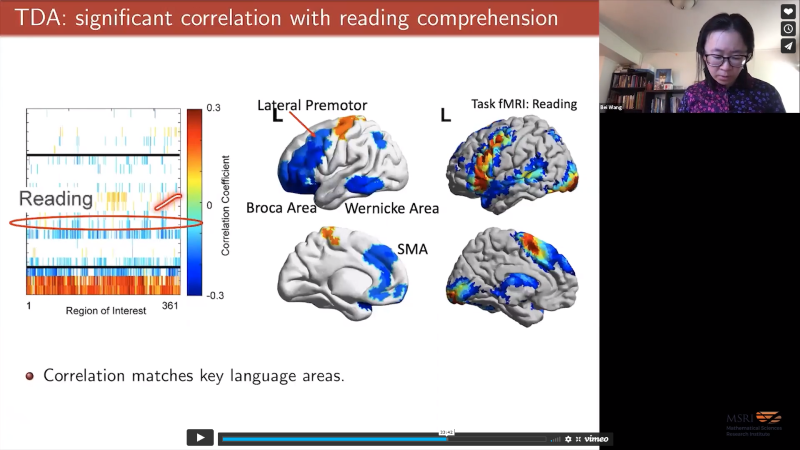Topological Data Analysis of Functional Brain Connectivity in Time and Space Domains
Presenter
May 6, 2021
Keywords:
- Computational topology
- neuroscience
Abstract
Functional magnetic resonance imaging (fMRI) measures brain activity by detecting changes in blood oxygenation levels (BOLD signals). Relating these activity measurements to behavioral and cognitive measures is a topic of great interest in neuroscience. The functional architecture of the brain can be described as a dynamic system where components interact in flexible ways, constrained by physical connections between regions. Using correlation, either in time or in space, as an abstraction of functional connectivity, we perform topological data analysis of resting-state fMRI data. We find that temporal vs. spatial functional connectivity can encode different aspects of cognition and personality. Topological analyses using persistent homology show that persistence barcodes are significantly correlated to individual differences in cognition and personality, with high reproducibility. Topological data analyses, including approaches to model connectivity in the time domain, are promising tools for representing high-level aspects of cognition, development, and neuropathology.
This talk is a summary of joint works with Sourabh Palande, Keri L. Anderson, Jeffrey S. Anderson, Archit Rathore, Brandon Zielinski, and Tom Fletcher.
